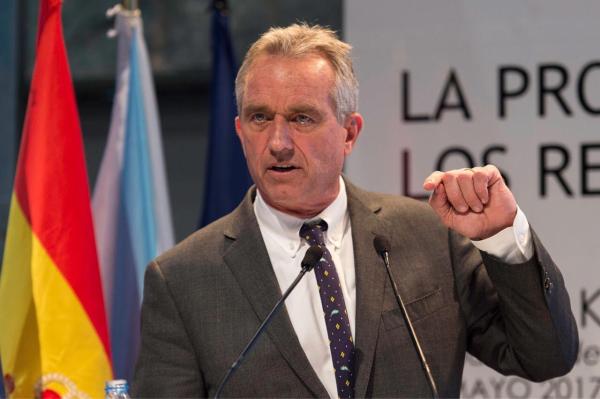Social media giants like Facebook, Twitter, and YouTube have promised over and over again to combat the spread of fake news, particularly if it leads to harm. This led to the controversial decision to ban or suspend former President Donald Trump from all of those sites. Now, Rudy Giuliani and that guy who sells pillows are next on the chopping block.
Though it's fashionable to bash social media (and I have bashed away, myself), the tech giants are actually facing a very difficult question: What to do with fake news, lies, and other types of controversial content?
On one side are those who claim that the First Amendment rules supreme. Free speech means free speech. So controversial content should be allowed.
On the other side are those who say that the First Amendment cuts both ways. It allows the freedom of association, but it also allows a freedom not to associate. If social media giants don't want to associate with a controversial figure, they can cut him or her off. Besides, social media is run by private companies, and the First Amendment does not apply to non-governmental entities.
The counterargument is that sites like Facebook, Twitter, and YouTube are essentially monopolies. There are no serious competitors. Additionally, once a site opens to the public, then everyone should be allowed to participate, including controversial people. By analogy, once an establishment (e.g., a coffee shop) decides to open its doors to the public, it can no longer systematically discriminate against certain classes of people.
The counter to that argument is that political views, unlike race or religion, do not constitute a protected class.
So, what's the right policy? I have no idea.
Robert F. Kennedy, Jr Still Haunts Social Media
But I do know this: Robert F. Kennedy, Jr. is one of the biggest scourges on public health, as he encourages the spread of measles, influenza, and cervical cancer through his anti-vaccine propaganda. (As if that isn't enough, he also blames vaccines for causing depression, anxiety, suicide, and dementia.) He has no business being on social media.
If the tech giants are really serious about putting a stop to dangerous misinformation, then the decision to ban RFK, Jr. should be a slam dunk. The anti-scientific, anti-medical nonsense he spreads literally kills people.
And yet, he's still there. Recently on Facebook and Twitter, RFK, Jr. said that the COVID vaccine was responsible for the death of legendary baseball player Hank Aaron. Specifically, he said that Mr. Aaron's "tragic death is part of a wave of suspicious deaths among elderly closely following administration of COVID vaccines."

Tragic death? That makes it sound like Mr. Aaron's death was somehow preventable. But it wasn't. Sadly, Mr. Aaron passed away in his sleep at the age of 86 from natural causes. The fact that he received a COVID vaccine prior to his death means absolutely nothing. It would be like blaming his death on the breakfast that he ate. It's entirely coincidental. Furthermore, RFK, Jr.'s claim of a "wave of suspicious deaths" is completely fabricated.
But, just for the sake of argument, let's pretend that his claim is true. More than 428,000 Americans have died of COVID in the past year, with more than 80,000 deaths occurring in January alone. If it was actually true that the COVID vaccine is killing people (and it is manifestly not true), we're talking about a few dozen deaths. So even if RFK, Jr. was right, the virus is killing more people than the vaccine by several orders of magnitude.
Did social media punish RFK, Jr. for this deadly nonsense? Nope. Facebook put up a tepid notice that the post might be misleading, and Twitter did absolutely nothing. The companies' claims that they're trying to clean up disinformation ring hollow.
Update on 11-Feb-2021 @ 11:20 a.m. PT: Instagram banned RFK, Jr.




